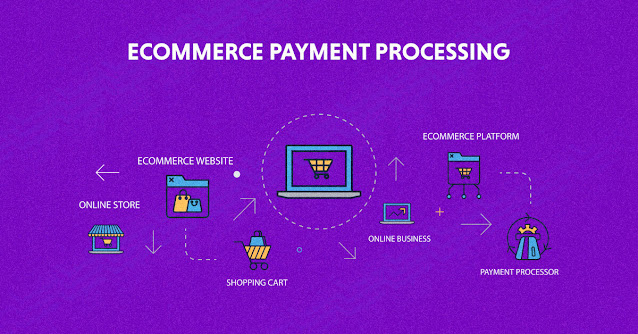There are a number of basic questions you may have when launching an online business, and the answers may depend on your particular business idea and objectives. Here are some crucial inquiries that business owners frequently think about:
" In business, we implement PDCA Cycle (Plan, Do,Check and Act)." It is very important theorem for success of any business.
 |
| PDCA CYCLES |
 |
| Research Step |
Make a thorough business plan outlining your objectives, plans, budget, and timetable.
 |
| Strategy Step |
4. What statutory and regulatory standards must I adhere to? Now that we have our business plan, we have to decide what we want to target, which audience we want to target, and what their requirements are. We take feedback from them, and on this basis, we structure the business. It is very important for any business to know what we want to target because if our target area is not decided, then how will we deliver our product to them? What do we want to become? Whether it is survival in the market or not, it all depends on your research; hence, determine who your ideal clients are and learn about their requirements, preferences, and characteristics.
Before we start a company, it is very important to know all these things: what are the
(1) What are the legal requirements for the company?
(2) What type of work permit is required?
(3) What is the governmental policy,health and safety policy,environmental policy, etc.? We will have to clear all these things to get approval from the government.
Only then will we get approval from the government to run the company, and we will have a stable market because our customers and clients will also want us to fulfill the legal requirements of the market. Hence Do some research on your company's legal structure, required licenses and permits, and online business compliance.
Decide how much money you need for your firm and take into account funding options like personal savings, loans, investors, or crowdfunding.
Create a user-friendly and secure e-commerce platform to facilitate online transactions.
Choose a pricing strategy for your goods or services that will allow you to remain competitive, pay your expenses, and turn a profit.
 |
Retail Pricing Strategies and Tactics |
I'll make an investment in paid web advertising that uses Google Ads and social media ads to target a particular demographic. Email marketing will keep clients informed and interested, and I'll use testimonials and reviews from previous clients as social proof.
Depending on the sort of business, offline initiatives may also involve direct mail advertising, local collaborations, and attendance at pertinent events.
Key performance indicators (KPIs), including website traffic, conversion rates, and ROI, will be used to measure marketing success on a regular basis, and the plan will be changed as necessary to optimize outcomes and successfully target the intended demographic.
Create a strategy for using advertising, SEO, content marketing, and digital marketing to draw in and keep customers.
 |
| Business Marketing Idea |
Create customer service procedures and resources to respond to questions and grievances and offer support.
Consider your options for shipping and fulfilment, including inventory control and order processing, if you are selling physical goods.
12. What equipment and technologies do I require? You'll need essential tools and technology in order to launch a new firm. These include devices for communication like email, phones, and video conferencing, as well as PCs with the necessary software for operations. Invest in a user-friendly website, an e-commerce platform, and payment processing technologies to facilitate online sales. UtiUtilizeventory management software to effectively track inventory and orders. Protective measures and data backup systems can ensure cybersecurity. Use digital technologies, CRM systems, and analytics platforms for marketing and analytics. Invest in customer service solutions and specialized software to streamline logistics and shipping. Incorporate office supplies like desks, seats, and printers into your workspace as well.
Determine the technical infrastructure, software, and apps needed to efficiently run your online business
 |
| Essential Tools |
13. Whom am I up against? Focus on distinctiveness through innovation, excellent customer service, and clever pricing to successfully compete in a new market. Utilise data and market research to spot possibilities and gaps. To reach your target audience, have a strong internet presence and marketing plan. Develop joint ventures and collaborations, and maintain flexibility to adjust to shifting market circumstances.
To learn about your competitors' advantages, disadvantages, and market positioning, conduct research on them
14. How will I gauge my progress and quantify my success? To gauge progress and quantify success for a new business, establish key performance indicators (KPIs) aligned with your business goals. Monitor financial metrics like revenue, profit margins, and return on investment. Track customer engagement through metrics like customer satisfaction, retention rates, and referrals. Analyze market share and competitor positioning to assess your market impact. Measure your online presence through website traffic, social media engagement, and conversion rates. Keep an eye on operational efficiency, such as production costs and delivery times. Regularly review and adjust these KPIs to ensure they remain relevant as your business grows, providing a clear and ongoing assessment of your success.
Identify key performance indicators (KPIs) and create a system for tracking and assessing the success of your company.
 |
| Progress Reports |
15. What long-term growth plan do I have? My new company strategy includes a number of crucial measures for long-term, steady growth. First, I'll concentrate on ongoing innovation and R&D to create new goods and services that satisfy shifting consumer needs. The development of a solid brand and devoted clientele will be a top concern. We can lower risk and boost revenue streams by diversifying our product and service offerings and expanding into new geographic regions. Strategic alliances and cooperation will also help us take advantage of others' strengths. Our expansion will be supported by prudent financial management and investments in personnel development. Last but not least, a dedication to sustainability and ethical company conduct will guarantee long-term success and society contribution.
Consider how you will grow and scale your online business in the future.
 |
| Long Terms Business Plan |
Make a plan to mitigate risk after identifying potential obstacles and dangers including market swings and cyber security attacks.
 |
| Hierarchy Risk Control |
Make sure you adhere to data protection laws and put security measures in place to safeguard customer information.
 |
| Data Protection and Security |
18. What is my plan of escape? Having an exit strategy is essential when starting a new firm. Think about your choices, such as selling the company, transferring it to a family member, or pursuing a merger or acquisition. Make sure your company is set up to be scalable and appealing to potential customers or investors. Keep accurate financial records and well-documented business operations. A realistic exit timeline should be established, and professionals or financial consultants should be consulted. Be ready to modify your strategy if market conditions shift, and strive for a smooth transition when you decide to sell the company to ensure the best results.
Think about whether you intend to sell, merge, or transfer the company to another party in the future.
See this Shorts Summarised Video























